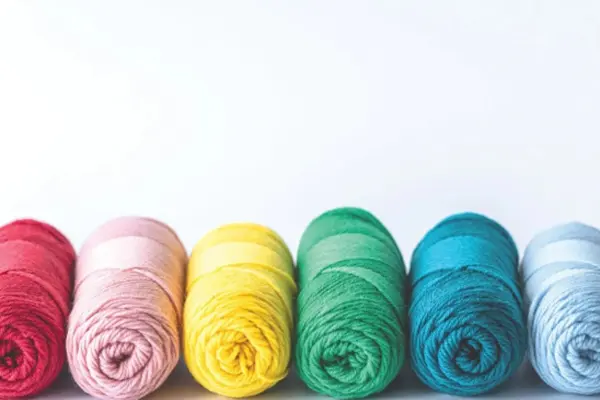When it comes to knitting, crocheting, or any other fiber art, one of the most important factors to consider is the type of yarn you use. The texture, durability, and softness of yarn can make a significant difference in the final product, whether you’re crafting a cozy sweater, a plush blanket, or a delicate scarf. But what type of yarn is the softest, and how do you choose the right one for your project? In this article, we will explore various yarn types and fibers known for their softness and provide insights into selecting the right soft yarn for your needs.
Factors That Affect Yarn Softness
Before diving into specific yarn types, it’s important to understand the factors that influence how soft a yarn feels. These factors include:
- Fiber Content: The material from which the yarn is made plays a huge role in its softness. Natural fibers like wool, alpaca, and cotton are often softer than synthetic options, although there are exceptions. Blends of fibers can offer the benefits of both, creating a balance between softness and durability.
- Yarn Thickness: The thickness of yarn, or its “weight,” can also impact its feel. Generally, thicker yarns, such as big yarn, can feel softer and more cushioned because they have more material and air in their structure, making them fluffier. Finer yarns, while still soft, may feel less plush because they are less voluminous.
- Processing: The way yarn is processed, spun, and treated can also influence its softness. Yarns that are combed or brushed tend to feel smoother, while some yarns may have a slightly rougher texture due to their spinning method or the presence of natural fibers like silk or linen.
Now, let’s look at some of the yarns known for being particularly soft.
Softest Yarn Types
- Alpaca Yarn Alpaca yarn is often hailed as one of the softest yarns available. It is made from the fleece of alpacas, animals native to South America. Alpaca fibers are finer and smoother than wool, and they have a natural luster that gives the yarn a silky feel. Alpaca yarn is hypoallergenic because it lacks lanolin, a substance found in sheep wool that can irritate some people. It’s a perfect choice for those with sensitive skin. While alpaca can sometimes be a little more delicate than wool, it is incredibly warm and lightweight.
- Best For: Scarves, shawls, sweaters, and baby items.
- Cashmere Yarn Cashmere is often considered the epitome of luxury when it comes to yarn. This fiber is obtained from the soft undercoat of cashmere goats, and it’s known for its incredible softness and warmth. Cashmere yarn feels like a cloud against the skin and is ideal for creating garments and accessories that require a high level of comfort. However, cashmere yarn can be expensive and may require more delicate care than other yarns.
- Best For: Luxury garments, scarves, and delicate accessories.
- Merino Wool Merino wool is a popular choice for soft yarn because of its fine fibers, which are softer than regular sheep wool. Merino is known for being lightweight, breathable, and incredibly soft against the skin, making it suitable for garments that require comfort, such as sweaters and hats. It also has natural moisture-wicking properties, which can help regulate body temperature.
- Best For: Sweaters, cardigans, hats, and blankets.
- Cotton Yarn Cotton yarn is another option known for its softness, especially when it is spun into a fine, smooth thread. While cotton can sometimes feel a bit firmer than wool or alpaca, high-quality cotton yarn can be soft and comfortable, particularly for projects worn in warm weather. Cotton is hypoallergenic and breathable, which makes it ideal for baby clothes and summer garments.
- Best For: Baby clothes, summer tops, dishcloths, and home decor projects.
- Bamboo Yarn Bamboo yarn, made from the pulp of bamboo plants, has a smooth, silky texture that makes it one of the softest yarns available. It is also naturally anti-bacterial and moisture-wicking, making it a great option for garments that will be worn next to the skin. Bamboo yarn has a slight sheen to it, giving it an elegant, luxurious feel.
- Best For: Lightweight garments, shawls, and summer accessories.
- Acrylic Yarn (Softened) While acrylic yarns are typically not as soft as natural fibers like alpaca or merino, many modern acrylic yarns have been processed to feel remarkably soft. High-quality, softened acrylic yarn can mimic the feel of wool and is more affordable and easy to care for than natural fibers. It’s also available in a wide range of colors and textures. When looking for a soft big yarn, acrylic is often a great option, as it can provide the plushness of a bulky yarn without sacrificing softness.
- Best For: Blankets, hats, toys, and home decor items.

Conclusion
When selecting yarn for your next project, softness is an essential factor to consider, especially for garments and accessories worn close to the skin. Soft yarns like alpaca, merino wool, and cashmere stand out as top contenders for their luxurious feel, while cotton and bamboo provide excellent alternatives with their breathable qualities. For projects requiring bulk and comfort, big yarn can offer both softness and volume, perfect for cozy, quick-to-make pieces. The key is to consider the fiber content, texture, and intended use of your project to choose the softest yarn that best suits your needs.





